Michael Daley's …Born With: Living with the poems and the poet
An Essay by Jim Bodeen
Born With, Dos Madres Press, Loveland, Ohio. ©2020.
I bring this up first because I've been waiting to say this to him from the first time I opened his new book, Born With. What a first poem, and what a book.
The poem, though, Daley in the criminal's corner. Squeals. Squeals and wriggles.
The muscle and laughter in this book among the tears. Finger painting his white shirt, jumping desks. Miss Neally's gone, but so many have taken her place. May that someday in a full auditorium, they'll all fill it, standing and applauding. First cherished Muse.
Daley is it. Tree planter shoveling coal. He wears the mantel in these poems calling up his father. What a lesson, this: He taught me resentment descends from its ape, approval. Robed in a hospice robe connected to the Pleiades. His father knows you carry that clear image of his rare true smile. He knows what it means to Daley. And, Michael Daley, I know that, too, one of your readers. I know it from reading your poems, from riding in the car.
Who knows where Sid Corman lives? Who knows who carries his journals. Riding the Peace Train from Mississippi after Hurricane Katrina, a man gets on the train in Atlanta sometime after midnight, sits next to me. He's just flown in from Korea. He's carrying Sid Corman poems, He's one of the keepers of Corman's journals. Riders in the storm. You with deep knowledge of stories found near railroads. The poet who stands with truth, counts tree rings, knows how it goes with trees, knows about cuts everywhere. This is some of what I find in Born With. I'm still in Section I. Four poems.
About these four poems opening the book, so much can be said. I've been walking with his poem, To Love, since the book arrived. To Love goes directly to the beloved. Shortest deepest testament come to me in years. A 12-line poem. To Love belongs with Blake. Priests in black gowns. The tension that might be maxed-out arrives plain as day. Everyone these days walking their rounds. Whose joy? Whose desire? Feast-absorbed. Joy in the title on the opposite page.
To Love is one of the essential poems in Born With. Memorable and visceral. Visceral organs. Emotions tied to biology and the body.
I want to take a turn with love, and I want to risk it in this essay, from my reading of the last four lines. Here they are:
And as promised
I felt nothing
ever again
Until you found me.
…as promised, the word delivers as it betrays, and belongs to the first part of the poem, and all that's included in the first eight lines. Nothing takes us straight down deep, into a life-time, the cost of it all, carrying it. And then, Oh my. Sit in silence with the last line for a week, until one's own sensibilities have an opportunity to recover. A first reading required nothing from me, but what comes immediate and spontaneous. Oh, my. Oh, my God. Wow. And sure, with the exhale, comes the wonder. And the wonder is also a question. Who here, is the beloved? Who is the one, and what happened? How did it happen. Sure, I said to myself, That's Kathy. And, yes, that is Kathy. Kathy, the beloved.
And then, maybe because I'm lucky, maybe because of the people in my life, I'm told, This isn't enough. One person only does one part. This is love requiring more. This poem requires more than the deep exhale. Stories of love, and love's definitions can be found. The four words in Greek leading to, and including, agape, for instance--unconditional love. But how to place it? How to make it stick? James Baldwin writes, Love is a battle, love is a war, love is growing up.
Let me go on with Baldwin, (I'm reading him daily as part of my response to George Floyd's death), because his words, also, hit me, viscerally. Baldwin turns to the question of love like this: It is the African-American who must teach the white American about love, because he has had to bear you, and sometimes even bleed and die with you, ever since we got here…and this is a wedding.
Until you found me.
It may be that one person found the essence of the persona in the poem. It may be. But that person also brings love that transforms. At this point, poet, I defer to you. Call it what you will.
I give thanks for these poems. Karen and I were self-quarantined on the Oregon coast, stopped for the afternoon at a Wayside Turnoff when I sat for the afternoon reading, remaining inside these opening four poems.
Previously I sat with a middle-aged physician, reading the title poem, Born With, in Section III. We took turns reading different parts of the poem. Her husband was a physician killed in an automobile accident. She went to medical school after his death. She wants to read this poem to one of her patients, a fireman. His father again, calling him, praising of all things, firemen. I sat again, at another time, with Notes at the back of the book. Daley's map of it all. Cassandra, his favorite mythic character, condemned to speak truth never to be believed. I love to sit with this page, and I have, contemplating each rest stop along the way--an essay here, a life deeply lived. Oar and altar. The Twentieth Century, one of Sam Hamill's favorite topics. All that Elpinor will never know. Water Street and Taylor. Bob Blair and all that can be contained and held in an empty bowl.
I've got these poems. Living with them these past months. And this is how I sat down with the book last week to read it cover to cover, taking notes in my notebook. Getting ready to write.. One more thing happened. Yesterday John Lewis died. Icon, monument, and all else he means to us. The empty bowl and what it all means. What passes for talk about monuments. We're talking about poems here. Rilke called his poems monuments. I'm starting my days with James Baldwin. Looking up connections this morning between Baldwin and Lewis, when Lewis was working with SNCC. Religious leaders have made Lewis tone down his speech. Here they are in 1980. Baldwin has just been to Atlanta and seen the monument of Martin Luther King, Jr. As absolutely irrelevant as the Lincoln Memorial. One for white people, he says. Irrelevant. Baldwin and Lewis. Monuments. Edmund Pettus Bridge.
Monuments are one of the ways the Western World has learned to outwit history--to make a life and a death irrelevant. It seems so right on. We seem so tame before the words. I find myself reading these poems along with Baldwin's essays at the same time. I like pairing the names. It seems to me Daley's signed up for the same right to say and love, and that includes in each his own way, the responsibility to remember what's vital to our survival.
Loving all that remains, American poet.
Talking about your poems on a day like this. Where else does one go but to poems, artists, the madness of a cliff-dwelling painter?
When I sat down to write this essay, the first time, I had a couple of things I wanted to discuss. I thought I was going to write about, Ars Poetica, his poem in seven parts. I was going to ask him about it, in a manner that would let expound. I also wanted to tell, Michael, I get this. Get it? I didn't even get to it. Sketching light in the husk of a bee. In ordinary time, throwing cloud-inked petals to wheeling stars, you camped in rain--Committing himself to this life, life with the poem. For the poem.
I do write him, Michael Daley. He writes back. He writes about the poems in a series of letters. He writes about his process of creation. He ends one letter with this: "In many ways I think that the fate of poetry is to fail--fail, and fail again. and fail better each time." Daley quoting the great one. But then he departs: "so a book like this will arrive new whenever anybody finds it, but it won't have the big life I'd always hoped for, for my books. A failure that's accepted in advance is I think a triumph, though neither one is more than delusional thinking in the face of the kind of reality mankind is presently faced with…The Old Ez dictum keeps coming back. Poetry is news that stays news. Books are new when someone discovers them."
Let me begin again, this time, with Ars Poetica. And where we're coming from. Ars Poetica, Latin for the art of poetry, title of the famous poem by Archibald MacLeish, is a reflection on what poetry is--and now the line drawn in the sand by poets who follow. Theological. After Martin Luther's, Here I stand.
Here's Michael Daley's Ars Poetica--seven times. One poem, seven parts? Seven poems under one title? Standing. Setting out. Part One:
I sketch the light in the husk of a bee,
but grey bits of eraser cling to my carpenter's pencil.
When I draw I learn a new language--
in fog, clumping in my oxcart uphill.
Sketching light, husk of a bee, rubber particles on paper. Childhood images of the student. Comfort of the eraser, brushing them onto the floor. They're dirty now. Sketching light! Who but a student could do it matter-of-factly! The flat-sided pencil. Work station. Lumber yard. The pencil--drag strip or runway. Yellow. With an address for orientation. Drawing as language. Hold on. Something new here. Something adult. Do you love the fog? Perhaps you're a clumper, too. Not the ultra-light young running wilderness trails night and day wearing LED lights on their foreheads, feet hardly touching trail. Clumper in tracks made by wood wheels. Oxcart hill. This is old school. Know your elders. Ars Poetica, Part One, the first four lines.
Daley knows my interest in this suite of poems. He writes back:
As for "Ars Poetica," (it was "An Ars Poetica" for a long time, just to try
to be humble, but I changed it to be more declarative finally in the last draft,
but that's not important), it was the product of an exercise I'd been doing with
classes for years, then for myself, and this specific one came out of the one and
only adult class I've taught in years. To some very nice people up in Bellingham,
who I thought didn't get anything out of it at all. I have no idea, of course whether
they did or not…At any rate, I called it a three-tiered approach to find the poem.
Write for twenty minutes in each of the three tiers. The first without any barriers
or editorial guides just writing every word that enters. The second twenty minutes
writing more selectively but writing without editing. The third level is to be
specifically selective and self-edited. Anyway, that's what I told them to do. So,
I got a first draft out of this and started to work on it for a few years attempting
to make it cohere. I like the metaphor of one art in place of another. Ars Poetica
was another title that doesn't necessarily follow-up within the poem. But kind of
leave the reader to figure out the connections.
Old school oxcart hill exercise practice discipline.
The good rain hammers the beat.
Ars Poetica, Part One, Line 8
The first section concludes: I stop to sketch but snow melt pours over my grave/ continuous as a twirl of the wrist. When the poet draws, he learns a new language.
A bit more selective now in Part II, or is it the second poem?
My pencil wrinkled the line of encouragement
across a dancer's forehead.
And Part III:
This rain is like that.
You can't escape.
Everything will be just fine,
beloved puppy.
Re-reading the Seven-in-One, the One-in-Seven, it's time for the critic to take a stand. Which and how. For me, this time, it's Five or Seven. Five begins: Pencil tip of the hummingbird is enviable. And Seven: If only I owned a tray full of colors…
I pull a quarter from my pocket. Heads it's Five. Tails it's Seven. Heads it is. Here's Seven in its entirety.
If only I owned a tray full of colors,
all worldly goods a glitter in a tin pail,
but I chose singing for my madness
and leered across a creek-ripped rain-field
where hoary pelican scrimmed her masterpiece in the muck
and everywhere flamed toothy aster, horns and debonair
promenades searing my trust, my naïve idiocy.
Deranged by this salt poetry,
I camped here in rain light.
MacLeish's famous poem, remember, containing this, A poem should not mean, but be.
Pick out the child. Where's Blake? At the beach inside a grain of sand. Lovers, madmen and poets. Echoes of Yeats? Where? What line? Does Daley take up writing to seduce women? A masterpiece in mud! Who is this: Huckleberry Finn! Why scrimmed, Toothy Aster?
but I chose singing…
This is jazz. This is Jeremiah. Choose one or both. This is reaching, and this is what it looks like when I ask Michael Daley, in a letter, to talk about his poems. Replying to my reading of his poems he writes, I'm humbled to be able to say something about the poems you mentioned. For one thing, To Love, was written a long time ago and the title was a puzzle to me for the longest time. The way I remember it, there was a lot of whittling with that poem. The title, for me, was the only way I could go, and it's meant to be, as you mentioned, a personification, not a person.
To Love
stitched from feral hides
led me under the New England pines,
they whittled the tip of a sawn limb
to gently press up through ribs
and the ventricular hollow
and on that spit their meaty hands
dipped me in the river
and as promised
I felt nothing
ever again
until you found me.
Daley again, Unlike your own experience, I think, love and religion for me were mutually exclusive. We got a lot of training, especially when I was a novice, in words like caritas, hamartia, agape, but human love, an emotional state, was irrelevant. The difference, I think between Wallace Stevens and William Carlos Williams, the poetry of abstraction and, no ideas but in things. When I read that, years later, seriously studying Williams, I was blown away. I never forgot it. Love, for Williams, was in every poem, which is why the asphodel shows up when he thought he was about to die. So, this poem of mine is addressed to the feeling, not the abstraction, not what they drummed into my head, along with obedience, chastity and poverty.
Recall the beginning of this discussion of Daley's work. I had written, You never read Among School Children to me! Daley reminds me that it's on his YouTube channel along with some family pictures. He's been faulted for not alluding to the Yeats' poem, …in momentary wonder/ A sixty-year-old smiling public man.
The title, I think does exactly what it's supposed to, hark to my roots, both
Irish poet, and kid in the Dorchester school system. And a public school teacher
65 years later. Miss Neally is still alive, by the way. Johnny McDonough,
who the poem's dedicated to, was my childhood best friend. There are pictures
of our mothers pushing us in matching baby carriages. We sat in the same
hard wood desk and read to each other, in first grade. When he read the poem,
or when I reminded him of the story, he said he thought that was just some
urban legend--that was you??? A vague memory to him but burned into my
retina's decade after decade. Johnny became a high school English teacher
too, then a principal. He's a great guy. He got in touch with me through
the internet somehow and we had a few meetings before my Mom died. He
tells me his brother still sees Miss Neally around the streets of Dorchester.
She must be well into her nineties.
*
Born With, book title, and title of the poem in Section IV of the book.
This line beginning a new stanza near the end of the poem, a lengthy, but not long, narrative poem. Can a father ask for more in a poem from his son than that? Daley says in response, Oddly enough, I don't think of "Born With" as an autobiographical poem. Of course, it's about my Dad and I wasn't there; it is literally what he told me happened to him.
Born With is about failure, Daley says. He shared with me several passages from his journal before the book came out. It is feeling human within the common language that makes the portrait on the wall matter.
It's fragility, doubt, insecurity, weakness and fear of death that informs our
our existence rather than boldness, confidence, expertise, assuredness and heroics.
The ordinary is failure and that's what I write within.
I would like to conclude this essay, not with a notebook reflection, but from some lines from
Against A Singular Beauty, one of the final poems in the book: And from a distance we call it beauty,
the ticking beauty of North America,
and we don't have to ask who will speak for it:
even a chipmunk upside down on a crippled trunk
makes it plain…
Someday, maybe, I'll sit with others, and we'll listen while Michael Daley reads to us, Among School Children. We'll carry it while being carried.
Jim Bodeen 19 July 2020--6 September 2020. Yakima.




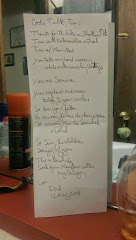
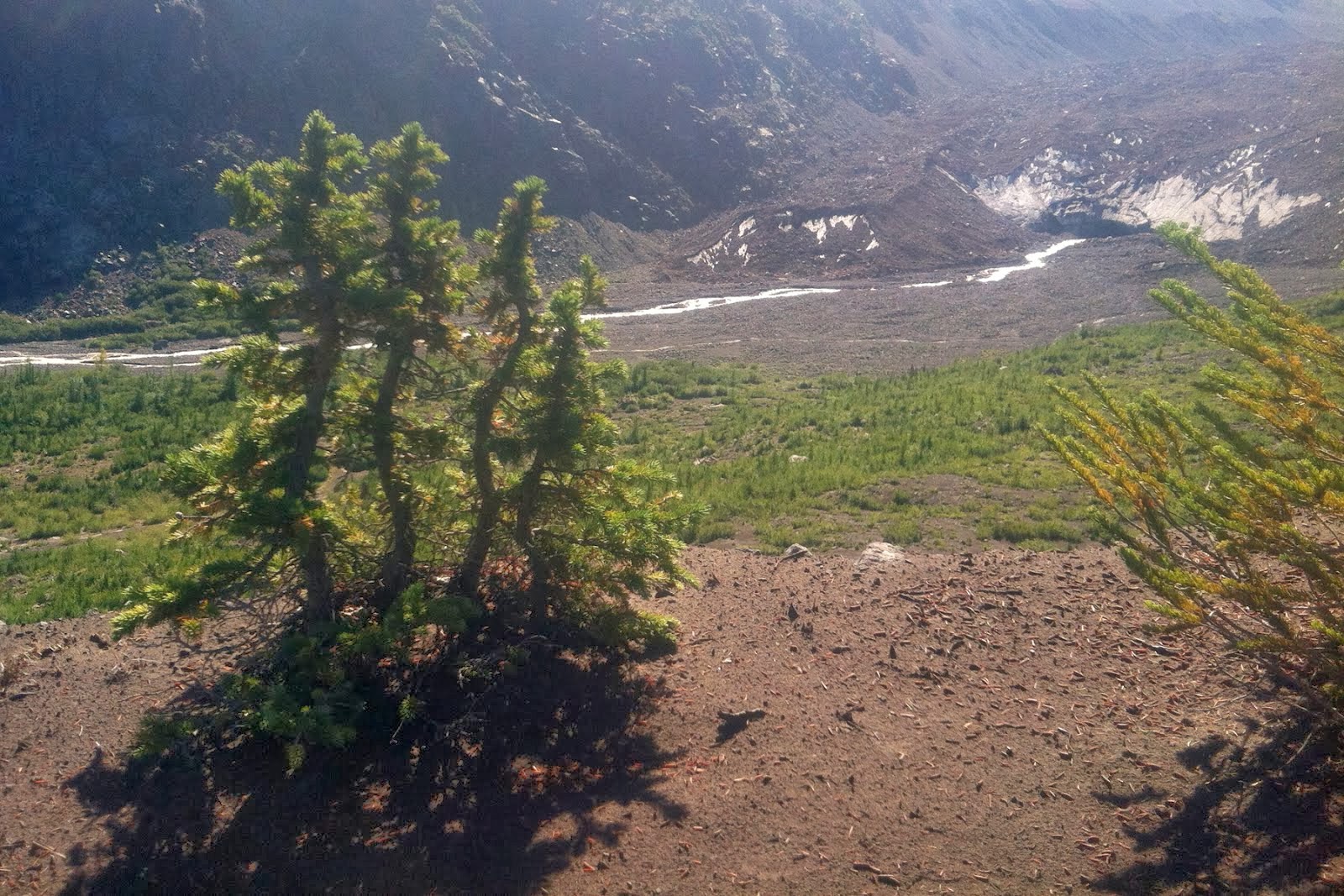
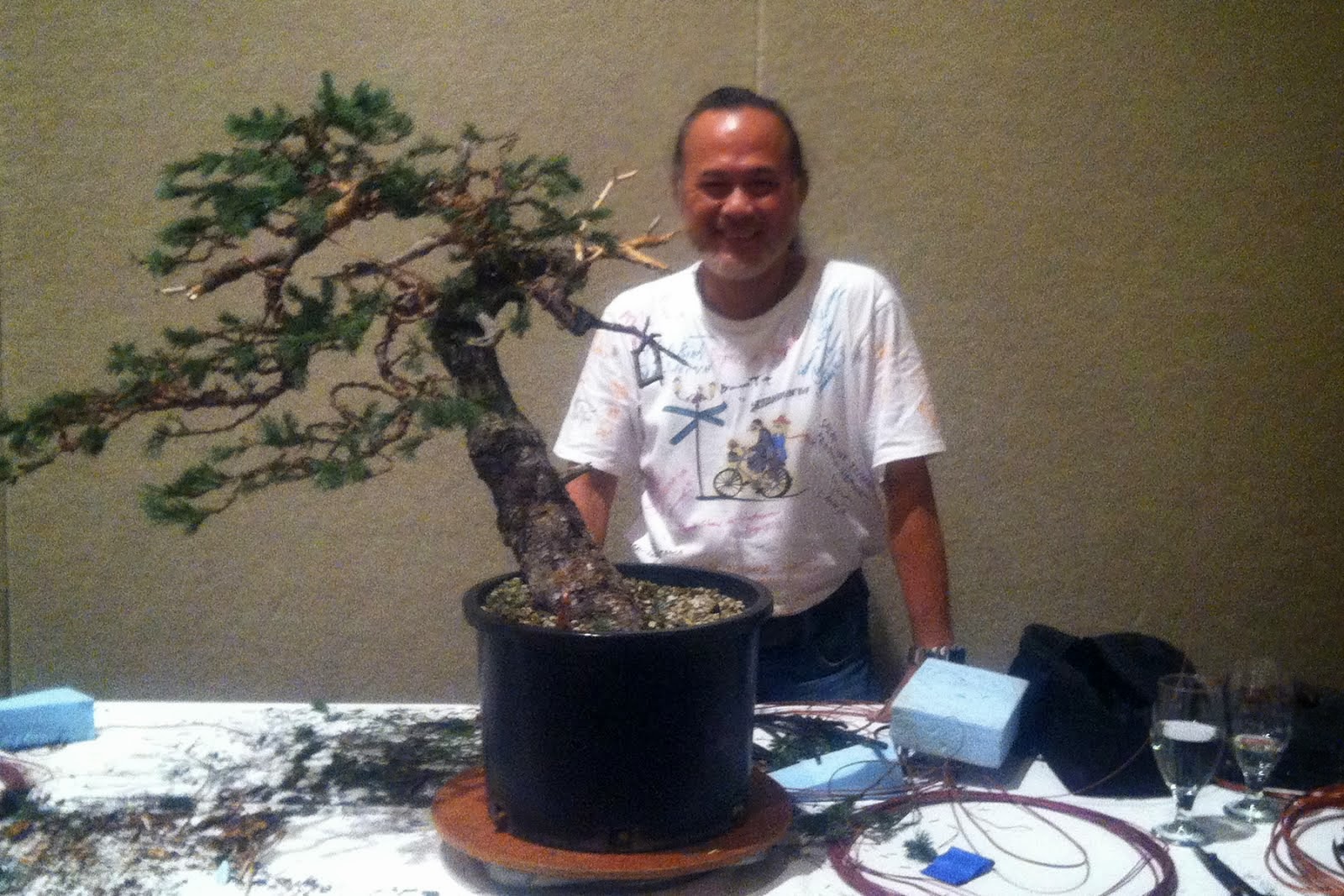
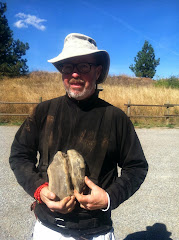


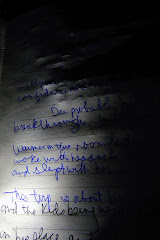

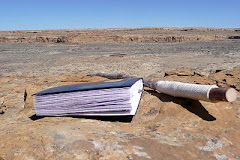
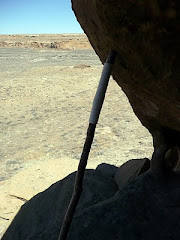

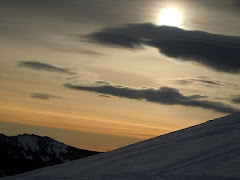
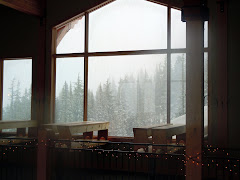


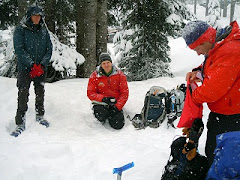
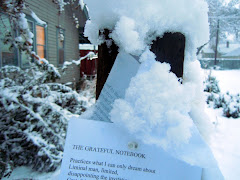

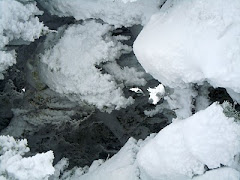
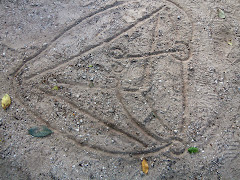
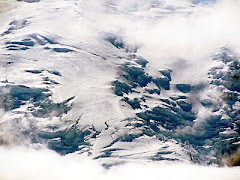











No comments:
Post a Comment